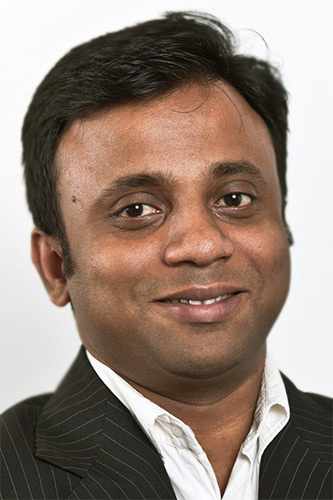/ Featured Blogs
An Easier Way to Define Broadband
 Our broadband policies always seem to lag the market. If and when the FCC seats the fifth Commissioner, it's expected that the agency will raise the definition of broadband from 25/3 Mbps to 100/20 Mbps. That change will have big repercussions in the market because it will mean that anybody that can't buy broadband speeds of at least 100/20 Mbps would not have broadband. That's how an official broadband definition works -- you either have broadband, or you don't.
Our broadband policies always seem to lag the market. If and when the FCC seats the fifth Commissioner, it's expected that the agency will raise the definition of broadband from 25/3 Mbps to 100/20 Mbps. That change will have big repercussions in the market because it will mean that anybody that can't buy broadband speeds of at least 100/20 Mbps would not have broadband. That's how an official broadband definition works -- you either have broadband, or you don't.
- By Doug Dawson
- Comments: 1
- Views: 6,440
Evolving From an Internet Registry to IoT Registry
 As the name indicates, the Internet of Things (IoT) should be an extension of the Internet. However, in reality, most IoT applications are Siloed infrastructures. We will analyse the main challenges in the IoT and explain how an Internet registry could be evolved to provide a secure and privacy integrated Identity and access management service for IoT.
As the name indicates, the Internet of Things (IoT) should be an extension of the Internet. However, in reality, most IoT applications are Siloed infrastructures. We will analyse the main challenges in the IoT and explain how an Internet registry could be evolved to provide a secure and privacy integrated Identity and access management service for IoT.
- By Sandoche Balakrichenan
- Comments: 0
- Views: 11,255
The Unprecedented Role of the Internet in the War in Ukraine
 The impact of the Internet in the Russia-Ukraine war is unprecedented in speed and scope. The most visible example of this has been President Zelenskyy's use of social media and teleconferencing in his roles as Commander in Chief of the armed forces, a global diplomat, and a leader of the Ukrainian people.
The impact of the Internet in the Russia-Ukraine war is unprecedented in speed and scope. The most visible example of this has been President Zelenskyy's use of social media and teleconferencing in his roles as Commander in Chief of the armed forces, a global diplomat, and a leader of the Ukrainian people.
- By Larry Press
- Comments: 0
- Views: 11,185
The Death of Millimeter-Wave Cellular?
 Apple recently announced that it is not building millimeter-wave spectrum antennas into the next generation SE iPhone. Interestingly, this is a phone sold by Verizon, which spent a year advertising on TV and showing us speed tests on cellphones that were receiving gigabit speeds.
Apple recently announced that it is not building millimeter-wave spectrum antennas into the next generation SE iPhone. Interestingly, this is a phone sold by Verizon, which spent a year advertising on TV and showing us speed tests on cellphones that were receiving gigabit speeds.
- By Doug Dawson
- Comments: 0
- Views: 9,424
ICANN SSAD Proposal Poised to Succeed?
 The GNSO Council and the ICANN Board both seem poised to grant sufficient runway to the community to refine an idea for a simple ticketing system designed to centralize requests for registrant information disclosures and provide meaningful data that is likely to help ICANN staff enhance its assessment of the SSAD proposal. This is very good news for those who advocate for consumer safety and trust on the Internet, and it is very good news for the ICANN multistakeholder model.
The GNSO Council and the ICANN Board both seem poised to grant sufficient runway to the community to refine an idea for a simple ticketing system designed to centralize requests for registrant information disclosures and provide meaningful data that is likely to help ICANN staff enhance its assessment of the SSAD proposal. This is very good news for those who advocate for consumer safety and trust on the Internet, and it is very good news for the ICANN multistakeholder model.
- By Paul McGrady
- Comments: 0
- Views: 12,504
What Duopoly?
 For the last twenty years, the industry has talked about broadband in cities as a duopoly, meaning there was competition between cable companies and telcos -- competition between cable modem broadband and DSL broadband. Twenty years ago, there was a true duopoly when the speeds on DSL and cable modem were close in capability. The market at that time demonstrated real duopoly behavior.
For the last twenty years, the industry has talked about broadband in cities as a duopoly, meaning there was competition between cable companies and telcos -- competition between cable modem broadband and DSL broadband. Twenty years ago, there was a true duopoly when the speeds on DSL and cable modem were close in capability. The market at that time demonstrated real duopoly behavior.
- By Doug Dawson
- Comments: 0
- Views: 11,096
How Is Russia Connected to the Wider Internet?
 Speculation about Russia disconnecting or being disconnected from the wider Internet abounds. In this article, we look at the connectivity of the Russian Internet to the wider Internet and how this evolved around the Russian invasion of Ukraine and the related sanctions.
Speculation about Russia disconnecting or being disconnected from the wider Internet abounds. In this article, we look at the connectivity of the Russian Internet to the wider Internet and how this evolved around the Russian invasion of Ukraine and the related sanctions.
- By Emile Aben
- Comments: 0
- Views: 10,986
The Status Quo of the Domain Industry in 2022
 While the global economy faced the challenges caused by the pandemic and society embraced new trends, the domain industry continued to expand thanks to the ongoing push toward digitalization. There is no sign of slowing down. The domain industry continued to move forward, embracing the internet's expansion: new trends, new technologies, niche markets and developments.
While the global economy faced the challenges caused by the pandemic and society embraced new trends, the domain industry continued to expand thanks to the ongoing push toward digitalization. There is no sign of slowing down. The domain industry continued to move forward, embracing the internet's expansion: new trends, new technologies, niche markets and developments.
- By Simone Catania
- Comments: 1
- Views: 11,677
Facing the Future of ICANN’s Volunteer Recruitment
 The musings of one volunteer summarize the problem: "As a newcomer to ICANN, I was always frustrated by the fact that I could never get a straight answer to the question 'How much time does it take?' There was always an awkward silence, a vaguely worded response. Now, years later, I know that no one in their right mind would sign up knowingly for the long hours and late shifts required to be a full participant in this game. It is a groundbreaking project that really matters. But you will get a lot more recognition and immediate satisfaction for volunteering far fewer hours at your local food bank."
The musings of one volunteer summarize the problem: "As a newcomer to ICANN, I was always frustrated by the fact that I could never get a straight answer to the question 'How much time does it take?' There was always an awkward silence, a vaguely worded response. Now, years later, I know that no one in their right mind would sign up knowingly for the long hours and late shifts required to be a full participant in this game. It is a groundbreaking project that really matters. But you will get a lot more recognition and immediate satisfaction for volunteering far fewer hours at your local food bank."
- By Joanna Kulesza
- Comments: 0
- Views: 5,759
It’s Time for a Better Vision of Internet Governance: From Multistakeholderism to Citizenship
 We are experiencing a time of global challenges. How to mitigate global warming, fight a global pandemic, and prevent the spread of totalitarianism and war, are just some of the most urgent questions. Digital technologies offer us the tools to unite and face these challenges, instead, we have experienced the deterioration of the Internet into a Splinternet. Is Multistakeholderism, the currently dominant guiding principle of Internet Governance, still up to the task?
We are experiencing a time of global challenges. How to mitigate global warming, fight a global pandemic, and prevent the spread of totalitarianism and war, are just some of the most urgent questions. Digital technologies offer us the tools to unite and face these challenges, instead, we have experienced the deterioration of the Internet into a Splinternet. Is Multistakeholderism, the currently dominant guiding principle of Internet Governance, still up to the task?
- By Klaus Stoll
- Comments: 0
- Views: 5,349